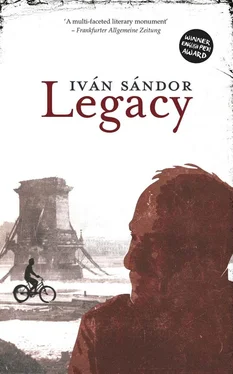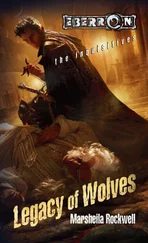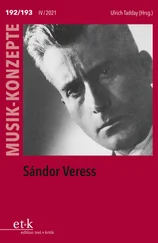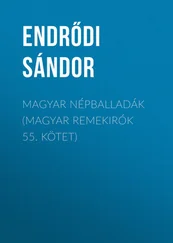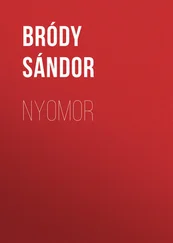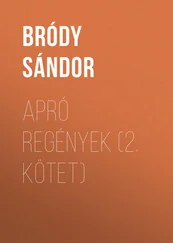A boat puts in to the harbour. Its passengers take photographs and buy postcards.
Ágnes asks for a tea.
In 1938 my parents decided to travel to relatives in London. It was my father’s idea. Well, that was where I was born. I’m a British citizen. Not long after I was born we returned to Budapest.
The black-haired young woman leads the little girl by the hand up to the first floor.
Half an hour later they are able to step into Carl Lutz’s office.
My mother later told me she felt that because she had managed to get Lutz’s attention regarding the fact that I am a British citizen it no doubt helped, she said, and even if that hadn’t been the case we were just on the point of returning home; my mother had packed; my father already had false papers and a place where he could hide away. We went back to Szabadság Square, and my mother was given a job, so when Lutz went to Buda we went with him. Then the house was hit by a bomb, and we moved down to the cellar — that was where we slept. I remember it. All that separated the sleeping areas at night was a sheet, with Lutz and Gertrud on one side and my mother and me on the other.
I have to tell her about my own meetings with Carl Lutz; she is gathering recollections about her stepfather. In return I learn that Carl and Gertrud said affectionate farewells to each other in 1946, which was also when Ágnes’s mother and father likewise said their affectionate farewells.
I first saw him at the Óbuda Brickworks, I say, though, of course, I had no idea at the time who it was I saw.
Ágnes sits on Carl Lutz’s knee.
She is playing with Charles’s young son.
She is looking over the unruffled surface of the lake and asks for another cup of tea.
They lugged iron bedsteads down into the cellar. I didn’t want to go down there. I kept bumping into beds— knocked my knee, I did. It was dark; I remember the darkness most of all. My mother washed our underclothes in a bucket.
She jots down everything she learns about her stepfather, I imagine in an attempt to populate the blank spaces in her memories.
I ask whether the things she is told awaken any memories — faces, maybe experiences? She says there was a time when that was so; something would flash into her mind, it but would vanish straight away. Many’s the time she would read over what she had noted down about what others had said about her stepfather. That makes it easier for her to accept that it all really happened, and she was there as well, she played a part, that’s how she puts it. I accept it, she says, but I can’t understand it.
What can’t you understand?
That what happened could have happened.
Her look is just like that of the little girl sitting on her stepfather’s knee in the photograph. The little girl is alert and pouting.
The skin of Ágnes’s face is bronzed even without any make-up.
Of course, what with all the mountain air.
I ought to make a note myself about her skin colour, the mountain air as well — that kind of thing I all too easily forget. Later, when I get back to my room.
My room on the first floor overlooks the lake. I learn that among the trees and bushes to be found in the natural park are comparative rarities such as the sweet gum, the Serbian spruce and the Atlas cedar. There is a flight of stairs on both the right and left of the lobby, the red carpet being held in place by glistening brass stair-rods. The central candelabra has eight arms; the one above it, at the level of the first floor, has six; and the wall lamps are all from the same family of light fittings. The flooring is of white-and-red marble tiling with a lily-ornamented pattern in the centre, the lettering of which says Hotel Locarno. Double-leafed glass doors lead into an inner hall, which gives on to conference rooms. Over the central door is a marble table. Under the caption ‘Conférence de Locarno’ is the date, 5–16 October 1925. Nations taking part in the conference: Belgium, Great Britain, France, Italy, Poland, Czechoslovakia.
I take a snap of the table.
Under that search term my Larousse encyclopaedia does not list Poland and Czechoslovakia as being among the signatories of the Locarno Treaties, 10but it does list Germany.
The marble table therefore says something different from the historical record and the encyclopaedia entry something different from the historical record:
The Locarno Pact was entered into with the object of bringing lasting peace to Europe. Great Britain and Italy undertook to act as guarantors of the mutual recognition and inviolability of the borders of France, Germany and Belgium and placed the prospect of armed intervention in the event that Germany were to occupy the demilitarized zone of the Rhineland. Germany was admitted into the League of Nations. Belgium’s neutrality officially ceased.
During those very days Carl Lutz was working as a counsellor at the Swiss Legation in Washington, DC, and meanwhile acquiring a bachelor’s degree at George Washington University. He is tormented by uncertainty and fearful of the future, he writes in his diary.
During that period my own mother and father were celebrating their first wedding anniversary. I place wedding photographs in the same folder where I keep copies of the photographs that Carl Lutz took as a young man. This is also the place for a photograph of Gizi as a young girl, a photograph of the black Packard that I have from my documentation and also the shot I took of the marble table in the hall of the Grand Hotel in Locarno that documents the treaties.
Ágnes is entering the hall as I take the photograph. Almost imperceptibly she drags one foot.
I was familiar with it, I say about the photograph in which she can be seen with the chauffeur’s son, but I didn’t know who the boy was or even that the chauffeur was called Charles. Well, it’s of no interest how vivid my memories of Charles’s son are. He always wanted to hold my hand. I liked playing with him, but I would not allow him to hold my hand. She says, The young girl who lay in hiding with you, how old was she then? She was in her thirteenth year, I reply.
What would those days have been like for me had Vera not been there?
We sit down in the main hall. This is where prime ministers must have sat; here where they signed the treaties. Ágnes lays out a series of photographs on the table as if she were playing out her life before me: pictures of her as a girl, family pictures, one photograph with Carl Lutz, again a picture together with the chauffeur’s son, a portrait picture of her mother. The look on her face is as if she were seeing the snaps for the first time. Her left hand is placed close to the last of them. She runs her fingers over her mother’s face almost as if touching it.
As if I were not there.
The two of us stay together.
Perhaps what I told her is helping guide her in fingering the features of the face.
Her index finger circumscribes the lines of her mouth then reaches further up along the nose to the eyes.
At times I see a portrait of Vera’s mother as Vera ran her finger over the photograph in exactly the same way.
Ágnes says, Yes, it was good playing with Charles’s son. It made it easier to get through those days — well, then again, we were very small, whereas you were a bit older.
She does not say that we had slept in the same bed, which is what I told her on the terrace of the Muralto Hotel. I don’t suppose she was all that curious about what might happen during a night-time encounter between a boy who was in his fifteenth year and a girl in her thirteenth. Maybe a face from her own older girlhood comes to mind, maybe the touch of another’s hand; the gestures that live inside us can copy on to each other as we sit wordlessly looking at the trees of the park beyond the big terrace, she resting her elbows on the table as she exhales smoke.
Читать дальше
